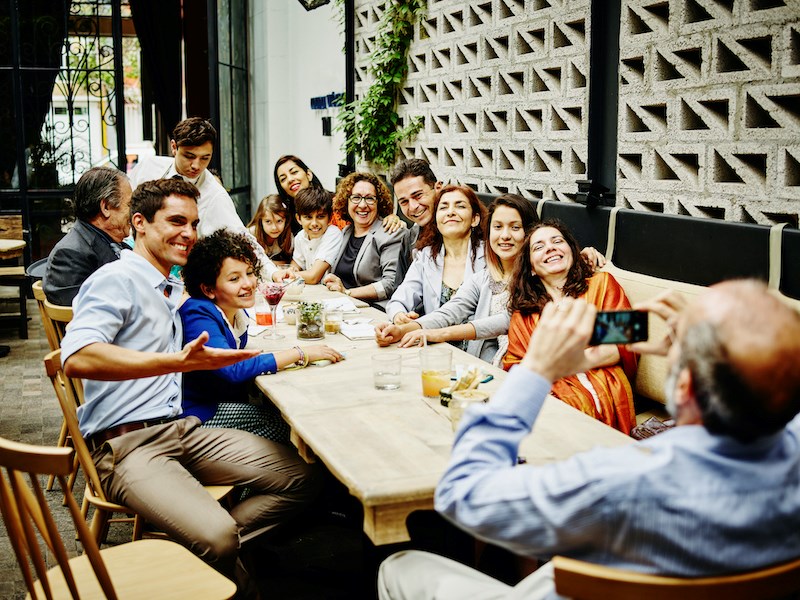British Columbia is no longer mandating restaurants cap tables at a maximum of six guests, marking a change in restrictions first put in place over a year ago.
When , there will be no provincial public health orders restricting how many people may be seated in a party at all restaurants, pubs, and bars.
In a press conference held Tuesday (June 29), Premier John Horgan confirmed that B.C. was indeed entering into Step 3 on the Canada Day holiday.
"I believe we can take the next step forward," said Horgan.
"We're moving most of the restrictions at restaurants, bars, and pubs," said B.C.'s public health officer Dr. Bonnie Henry.
Which restrictions are lifting for B.C. restaurants?
The cap on group seating at restaurants was first implemented in the province back in May 2020, when businesses were permitted to re-open following a full ban on indoor dining implemented two months prior at the onset of the pandemic in B.C.
While in Step 2, which began June 15, public health orders were amended to allow liquor sales at restaurants to go until midnight, Step 3 removes all restrictions and returns liquor sales to normal for licensed B.C. establishments.
During Step 3, businesses will gradually transition to new communicable disease plans, with guidelines for these plans released by WorkSafeBC on June 28, according to the B.C. government.
"These plans will continue to include physical barriers at many business and retail settings. Capacity limits, formal health screening tests and directional arrows, as well as other physical distancing measures will no longer be required. However, they may still be used during this transition period," notes a media release from the premier, Ministry of Health, and Ministry of Jobs, Economic Recovery and Innovation.
Not changing will be the restrictions on socializing between tables, which will also be a rule for nightclubs, which will be able to re-open, with seated parties of up to 10 permitted as of July 1. Henry says details of what will be permitted has been discussed among leaders in the sector, and will include things like distancing measures and barriers.
'We're in different places': Many restaurants may not make sweeping changes right away
Not all restaurants are likely to immediately throw away their current COVID-19 safety set-ups or be willing to seat groups of seven or more.
Justin Tisdall, who co-owns three Vancouver food and drink ventures, says while there will be some slight changes in operations starting July 1, his businesses will be waiting until staff can reach full vaccination status.
Two of Tisdall's establishments, the casual West End plant-based Beetbox and Chinatown cocktail spot Chickadee, will increase their overall seating capacity right away.
However, at both those locations, as well as at his fried chicken restaurant Juke - a largely take-out operation with a handful of indoor seats and a small daytime patio - masks will not be mandatory inside for customers as of July 1. Tisdall explains that due to the restaurants' set-up and scale, patrons were not required to be masked for long anyhow while dining.
Further, Tisdall explains, dividers won't be coming down, and staff will still be working with masks on.
When it comes to serving alcohol later, while Chickadee will now be permitted by law to run the bar until 1 a.m. weeknights and 2 a.m. weekends, that's not something Tisdall and the team will implement until likely early in the fall - and in response to consumer demand.
"We've gotten pretty used to these protocols," says Tisdall, who notes that he anticipates that not all guests may feel comfortable right away either being in a crowded space.
"We're in different places," acknowledges Henry of where B.C. residents and business owners stand at this moment when it comes to comfort levels with reduced restrictions.
Tisdall acknowledges that within his industry and among customers there is a strong desire to shed restrictions. "I think a lot of people are really excited to getting back to as close to 'regular' service as they can," says the Vancouver business owner. "The common belief is that COVID is not going anywhere...we're going to have to live with it for the next few years."
"Personally, my biggest concern is the comfort level of my staff," adds Tisdall.




